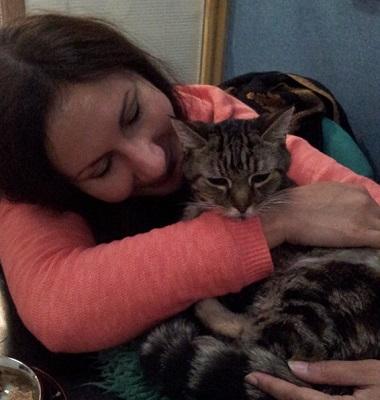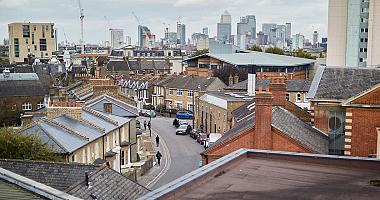MA
Sociology
Content navigation menu
Why study MA Sociology at Goldsmiths
How can sociology engage with the most significant challenges facing societies today and the patterns and dynamics of contemporary social life? Through an introduction to the sociological imagination and sociology as a craft and vocation, you will study core themes of sociology at an advanced level to develop your capacity to think critically and sociologically.
- The MA Sociology provides an advanced introduction to key debates about society, culture, and the world we live in. The degree combines a broad base of knowledge and theory, with a sharp focus on specific areas of expertise (methodological and theoretical) within the social sciences.
- You’ll be able to build on your core sociological knowledge and methodological skills alongside a uniquely creative approach that enables you to focus on specialist areas to match your individual interests.
- You’ll join a community of students from around the world who have a range of backgrounds and interests, and who bring these unique perspectives to the study environment. We welcome graduates from fields such as social science, humanities and philosophy, as well as more creative and artistic pursuits.
Contact the department
If you have specific questions about the degree, contact Fauzia Ahmad or Katherine Robinson.
Length
1 year full-time or 2 years part-time
Fees
Home - full-time: £10350
Home - part-time: £5175
International - full-time: £20460
Department
Gain a strong foundation in the sociological imagination
You’ll acquire a base of sociological knowledge, theory and methods that will enable you to study core themes of sociology in-depth at an advanced level and to develop your ability to think critically and sociologically.
You will also study how sociological methods are being transformed in the age of visual, digital and other technologies and how live or inventive forms of empirical research challenge other modes of social and cultural analysis.
Learn from expert academics with cutting-edge research specialisms
You'll be taught and supervised by academics in the Department of Sociology, and you'll be invited to actively take part in the department's cutting-edge research culture. This includes events organised by the following research centres and units:
What you'll study
You will take two compulsory modules that will provide you with foundational training in sociological knowledge, theory and methods:
| Module title | Credits |
|---|---|
| Methodology Now | 30 credits |
| Sociological Exhibition Making | 30 credits |
Structure
As a full-time student, you will normally complete one compulsory module and one option module in each of the Autumn and Spring terms. As a part-time student, you will spread these modules over two years.
Teaching
Compulsory and option modules are normally taught by one-hour lectures, followed by one-hour seminars.
Assessment
The assessment consists of coursework, extended essays, reports, presentations, practice-based projects or essays/logs, group projects, reflective essays, and seen and unseen written examinations.
Careers
Graduates of our MA programmes go on to work for:
- Governments and public administrations
- NGOs and charities
- The media
- The arts
- The commercial sector
Some also go to do research in diverse organisations, as well as to do PhDs and to have academic careers in universities all over the world.
Skills
Throughout the course of the Masters you'll develop the following skills:
- Critical thinking
- Imagination
- Methodological and research skills
- Communication skills
- Time management
Many members of the department contribute to the programme. You may meet a range of different staff members if you choose the options on which they teach, or if your dissertation project fits well with their expertise and they are available to supervise you.
Entry requirements
You should have (or expect to be awarded) an undergraduate degree of at least upper second class standard in a relevant/related subject.
You might also be considered for some programmes if you aren’t a graduate or your degree is in an unrelated field, but have relevant experience and can show that you have the ability to work at postgraduate level.
International qualifications
We accept a wide range of international qualifications. Find out more about the qualifications we accept from around the world.
If English isn’t your first language, you will need an IELTS score (or equivalent English language qualification) of 6.5 with a 6.5 in writing and no element lower than 6.0 to study this programme. If you need assistance with your English language, we offer a range of courses that can help prepare you for postgraduate study.
Fees and funding
Annual tuition fees
These are the PG fees for students starting their programme in the 2024/2025 academic year.
- Home - full-time: £10350
- Home - part-time: £5175
- International - full-time: £20460
If your fees are not listed here, please check our postgraduate fees guidance or contact the Fees Office, who can also advise you about how to pay your fees.
It’s not currently possible for international students to study part-time under a student visa. If you think you might be eligible to study part-time while being on another visa type, please contact our Admissions Team for more information.
If you are looking to pay your fees please see our guide to making a payment.
Funding opportunities
Explore the Goldsmiths scholarships finder to find out what funding you may be eligible for.
If you are a UK student you may be eligible for a postgraduate loan.
Meanwhile our Careers Service can also offer advice on finding work during your studies.
Paying your fees
Find out about paying your tuition fees.
Additional costs
In addition to your tuition fees, you'll be responsible for any additional costs associated with your course, such as buying stationery and paying for photocopying. You can find out more about what you need to budget for on our study costs page.
There may also be specific additional costs associated with your programme. This can include things like paying for field trips or specialist materials for your assignments. Please check the programme specification for more information.
How to apply
You apply directly to Goldsmiths using our online application system.
To complete your application, you will need to have:
- Details of your academic qualifications
- The email address of your referee who we can request a reference from, or alternatively a copy of your academic reference
- Copies of your educational transcripts or certificates
- A personal statement
You'll be able to save your progress at any point and return to your application by logging in using your username/email and password.
Read our guide to applying for a postgraduate degree at Goldsmiths.







